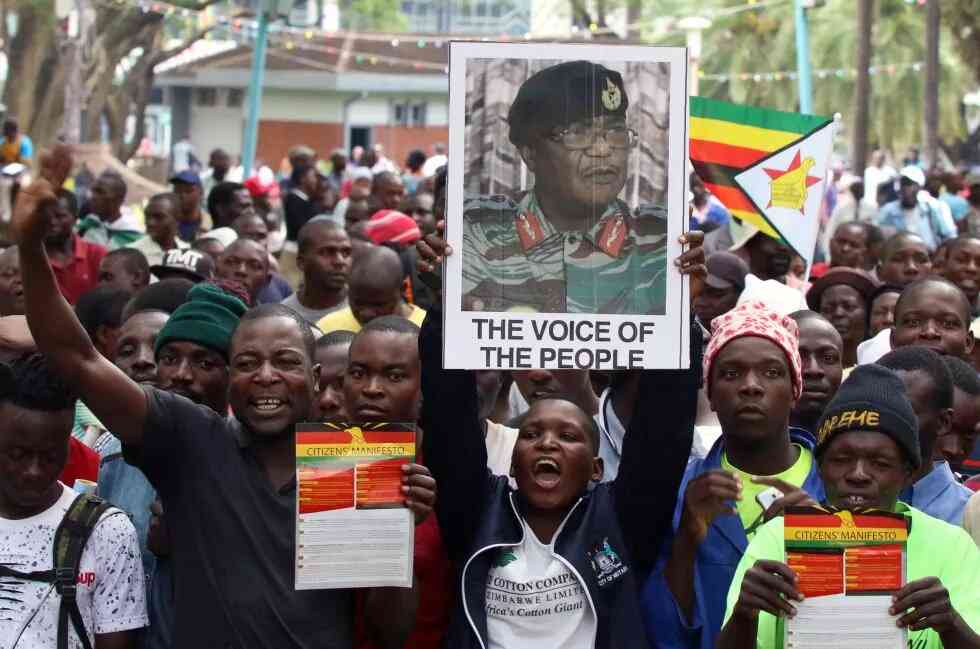
HISTORY seems to be repeating itself. Eight years ago, war veterans of Zimbabwe’s independence struggle organised a rally at Zimbabwe Grounds in Highfield at the height of Robert Mugabe’s misrule. They openly denounced the late strongman.
At the age of 93, Mugabe, who had ruled Zimbabwe for nearly four decades, presided over a decaying state aided by his wife, Grace, and a mafia-like grouping called G40. Despite his “one-man, one-farm” policy, Mugabe’s family owned multiple farms.
The economy was in disarray. Mugabe’s daughter, Bona, had been appointed to the country’s censorship board, which was notorious for banning content critical of Mugabe’s administration.
Her estranged husband, Simba Chikore, was handed an executive role to steer the state-run national carrier, Air Zimbabwe. In a brazen stunt reeking of corporate governance malfeasance and nepotism, Chikore also ran a newly-formed “private” airline, Zimbabwe Airways, using public funds.
Under controversial circumstances, the airline purchased several planes, sparking a public corruption scandal.
Zimbabwe had effectively degenerated into a kleptocracy, run by Mugabe’s family and his inner circle. Sympathisers of his regime, particularly those who supported the continuation of the Mugabe dynasty, were given seats at the feeding trough.
On that historic day, November 18, 2017, jubilant Zimbabweans from all walks of life endorsed the move by war veterans and the military calling for Mugabe to step down. That month, after the military took over key state institutions, Mugabe was placed under house arrest.
He resigned on November 21.
- Feature: Reality TV, social media reshaping marriage ceremonies
- ED bomb attack mystery deepens
- ED bomb attack mystery deepens
- letter to my people: What’s happening to the strongest currency?
Keep Reading
President Emmerson Mnangagwa, then Mugabe’s deputy, ascended to power a few days later. He pledged to redirect Zimbabwe’s tanking economy onto a firm recovery and growth trajectory.
However, recent events on Zimbabwe’s fluid political landscape, sparked by Mnangagwa’s loyalists pushing to extend his term limit to 2030, have drawn the ire of war veterans led by Blessed Geza.
Boldly, Geza has declared that veterans of the liberation struggle will not sit idle while Zimbabwe’s economy, endowed with vast natural resources, is exploited by Mnangagwa’s clansmen.
The veterans’ bold declaration, which resonates with the grievances of ordinary citizens, has been widely endorsed by Zimbabweans struggling under the crushing weight of an imploding economy.
Yet, Zimbabweans remain wary that whoever succeeds Mnangagwa, particularly within the ruling party, will continue to run the country like a personal fiefdom. This is not what Zimbabweans, who overwhelmingly supported Mugabe’s ouster and now seek Mnangagwa’s exit, want.
Post-Mugabe and Mnangagwa, Zimbabweans are clamouring for an all-inclusive change. Politicians must take heed.











